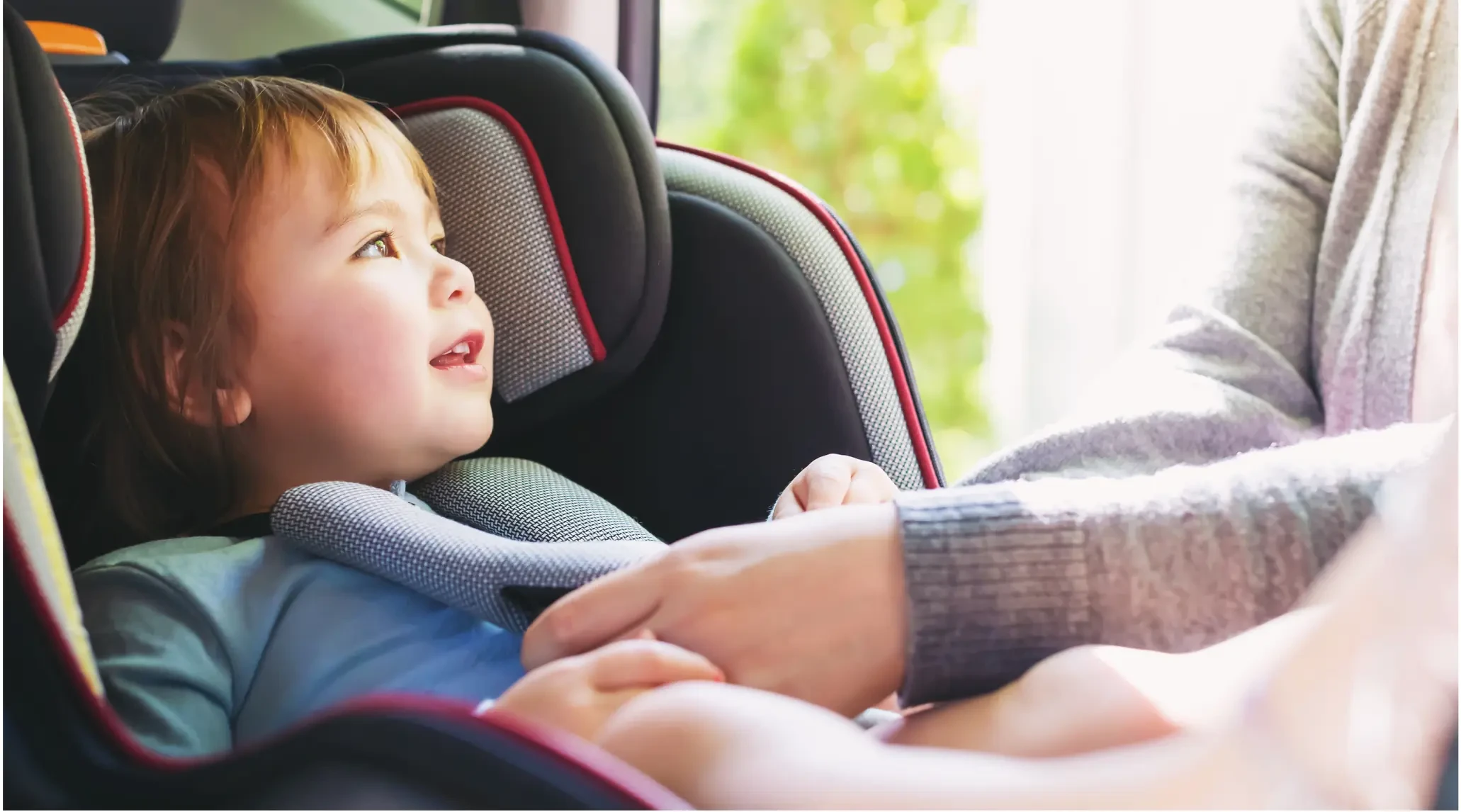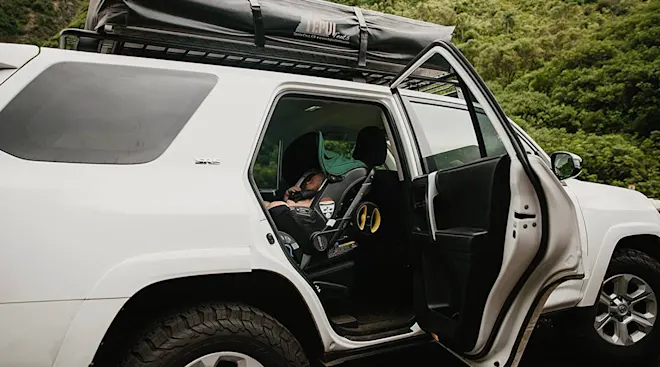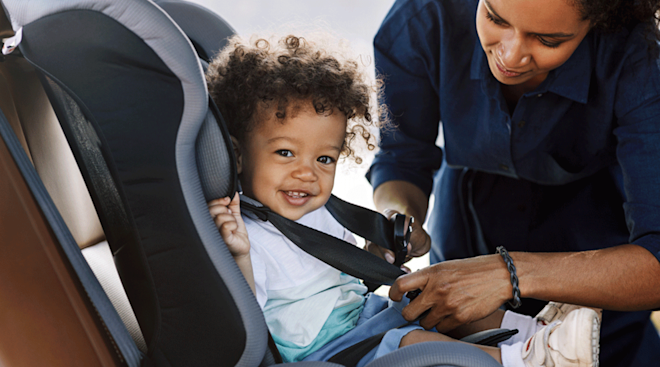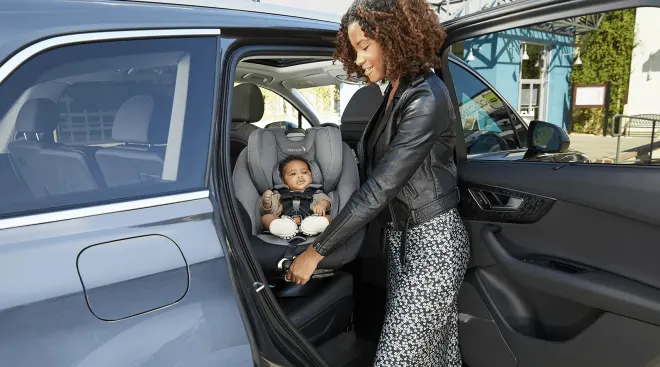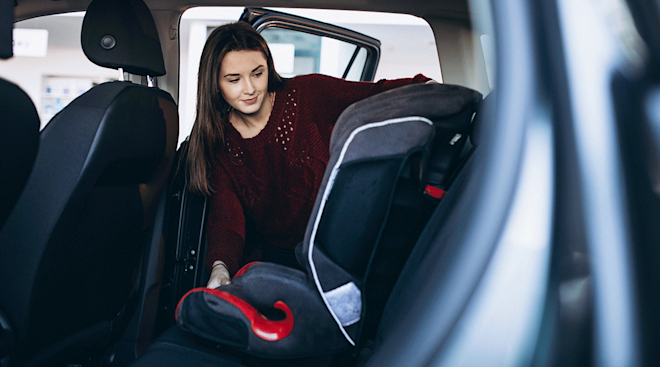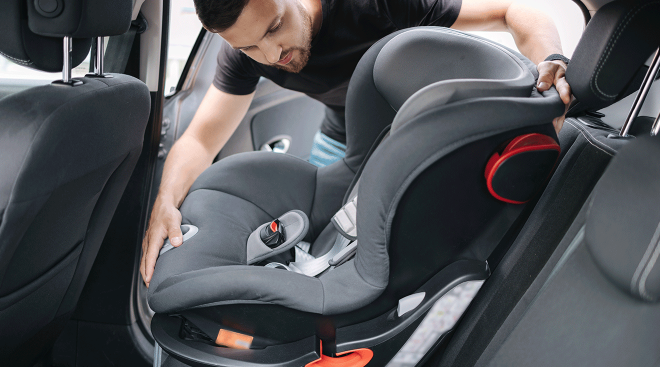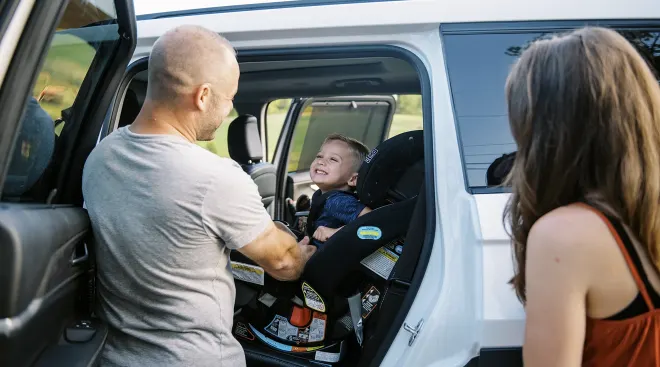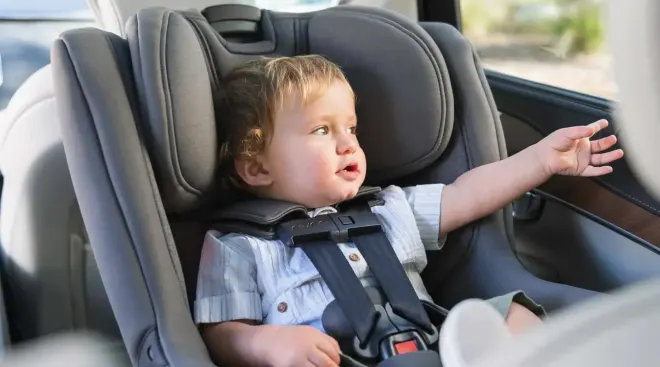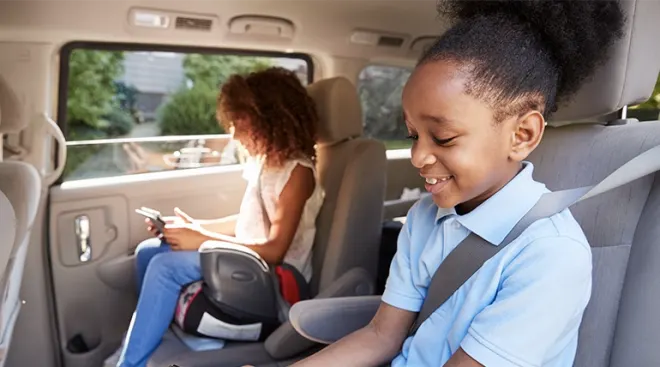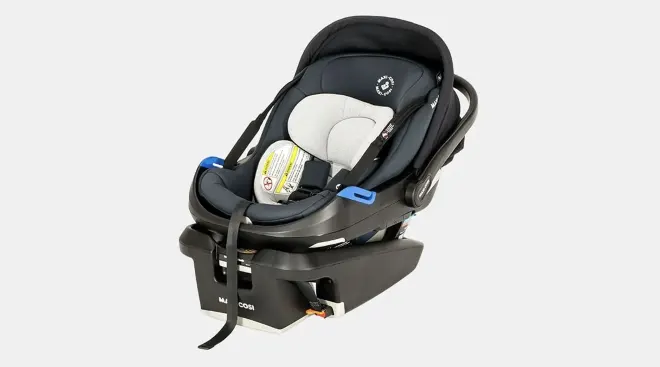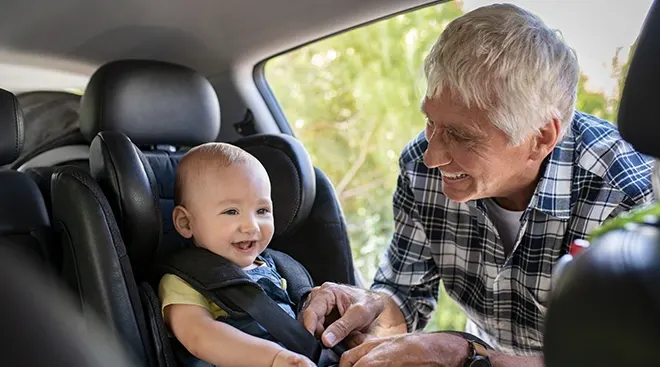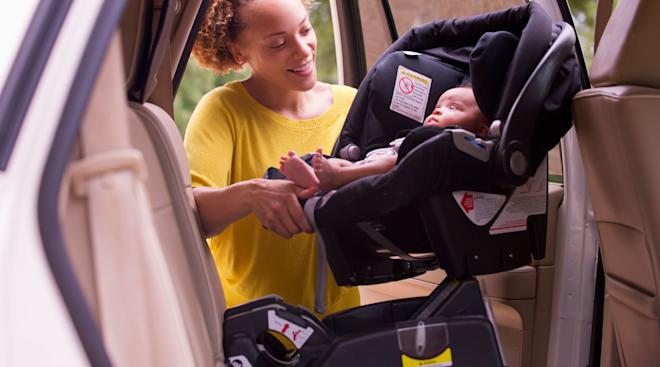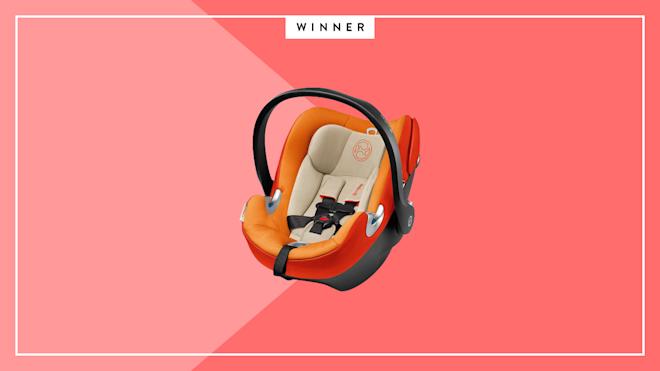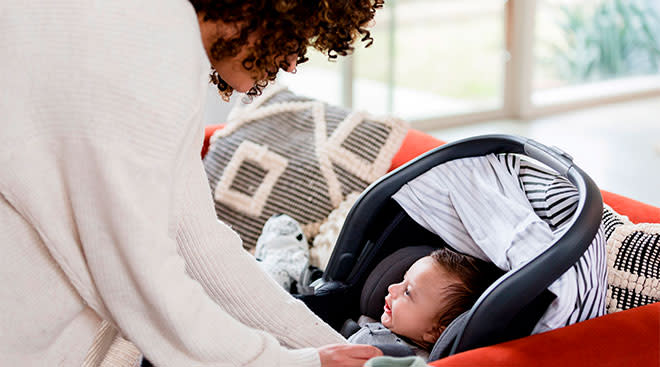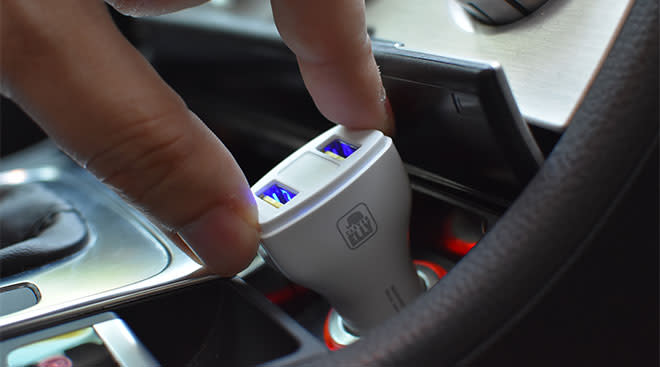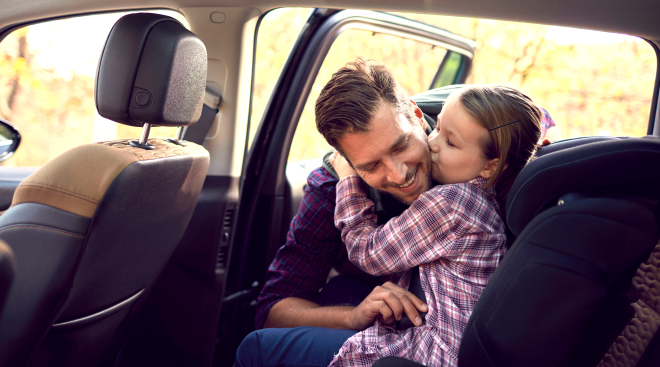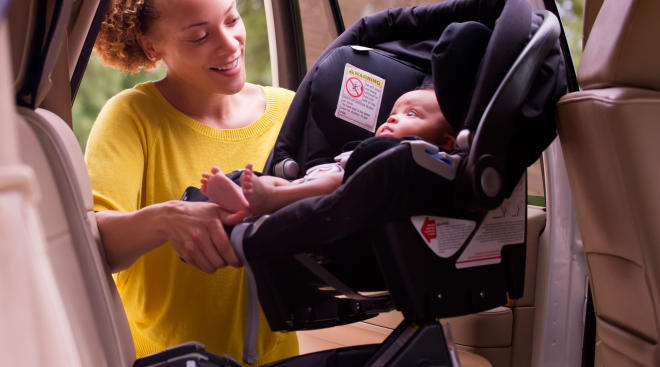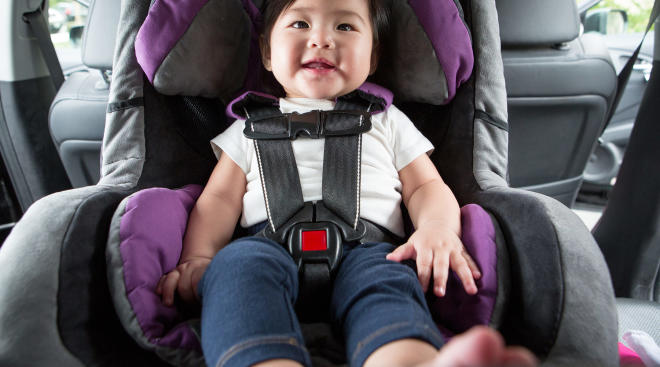Counterfeit Car Seats Are Flooding the Market, Here’s How to Spot the Fakes
We all love to snag a good deal, but at what cost? As inflation pushes up the price of already expensive baby gear, many parents are shopping online to find the best deals. While convenient and inexpensive, experts are warning parents to look out for a troubling trend—counterfeit car seats.
These bargain-priced knockoffs might look like an everyday car seat but can pose significant dangers to children. Often made with cheaper, flimsy materials and faulty safety features, these seats haven’t been crash tested and don’t meet federal safety standards. Small changes can lead to seat malfunctions and performance issues that could injure baby in the event of a wreck.
According to Emma Costello, a spokesperson for Buckle Up for Life, a program created by Cincinnati Children’s Hospital Medical Center and Toyota focused on helping families travel safely, there are three common types of counterfeit car seats: Blatant knock-offs of brands like Doona; “Approved” elsewhere car seats designed for use in other countries; car seats like look US certified book aren’t made by car seat companies and are missing important safety features.
So how can you spot the fake? Costello says that these counterfeit car seats often have some pretty obvious tell-tale signs.
Five tips for identifying counterfeit car seats
- Check the labels. Authentic, federally-compliant car seats will contain many safety labels, including a warning label with a yellow header that states, “This child restraint system conforms to all applicable Federal Motor Vehicle Safety Standards (FMVSS).” Counterfeit car seats are often either missing these vital warning labels altogether or contain labels with grammatical errors.
- Make sure essential paperwork is included. In addition to safety labels, car seats are required to come with safety manuals and a registration card. If your seat lacks this essential paperwork, there is a high probability it is a counterfeit seat.
- Register your car seat. Every car seat comes with a unique serial number. Sophisticated counterfeiters will use fake serial numbers or serial numbers that have been registered. By registering your serial number with the car seat’s manufacturer, and confirming that your number is uniquely yours, you can be sure of your car seat’s authenticity. You can register your car seat on the Buckle Up for Life website.
- Look out for obvious design flaws. Many counterfeit car seats are missing one very important safety feature present on all federally regulated car seats in the United States: the chest clip. Five-point harnesses are a must-have, so if the car seat you’re looking at online is missing the clip that secures the straps over the baby’s chest, it’s a fake.
- Beware of third-party sellers and generic brand names. When researching products from online retailers, steer clear of third-party sellers with strange and unfamiliar names. They may very well be counterfeit car seats. Instead, research car seat brands sold in brick-and-mortar US stores and look for online listings shipped and sold directly by the manufacturer. You can also review The American Academy of Pediatrics’ list of approved car seats and the expected market cost for each seat.
If you’ve purchased a counterfeit car seat, return the item and notify the retailer. If returning the seat isn’t an option trash, don’t donate it.
For budget-friendly car seat options, consider a certified trade-in program like GoodBuy Gear which quality and safety tests open box car seats for resale to parents. Read more about their trade-in partnership with buybuy Baby here.
Navigate forward to interact with the calendar and select a date. Press the question mark key to get the keyboard shortcuts for changing dates.

































